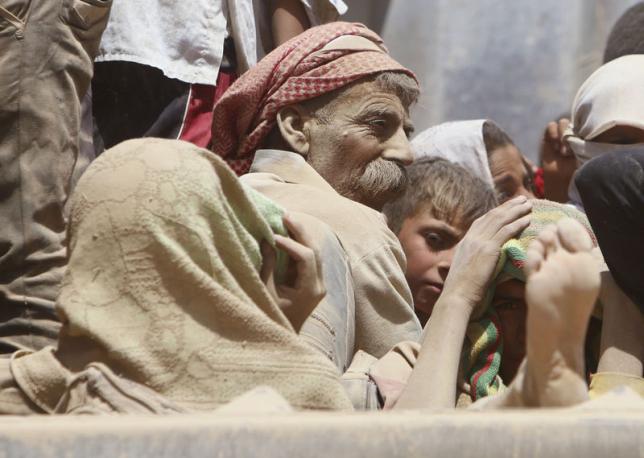Yezidi woman nominee for Nobel Peace Prize
.jpg)
ERBIL, Kurdistan Region (K24) - The Iraq Minister of Migration and Displacement on its official website on Wednesday declared the nomination of a Yezidi woman for the 2016 Nobel Peace Prize.
Iraq Minister of Migration and Displacement, Darbaz Mohamad said that Nadia Murad Basee Taha was nominated by the Iraqi federal government for her effective role in promoting the plight of Yezidi women suffering under the Islamic State's system of sexual enslavement.
“The Nobel Peace Prize candidates need support from a government for their nomination, so the Iraqi government decided to introduce Nadia Murad this year,” Mohamad added. Twenty-one-year-old Nadia Murad is from the Yezidi village of Kocho, near Sinjar (Shingal) in Northern Iraq.
According to the Nobel Peace Prize website, the nominees’ forms must be submitted to the Assessment Board on February 1 of each year. Then, in early October, the names of the Laureates will be announced.
On August 3, 2014, IS militants abducted Nadia Murad and a large number of other Yezidi Kurdish women and children. Nadia escaped from IS on September 14 of the same year after enduring sexual abuse and torture by IS jihadists in Mosul.
In addition to personally being raped, she witnessed numerous atrocities: she witnessed the murder of her six brothers and stepbrothers as well as the gang rape and sexual slavery of countless Yezidi women.
In a visit to New York in December 2015, Murad delivered her personal story and detailed IS' brutality at the United Nations Security Council, imploring the international community to do more to destroy IS and help its victims.
Murad also visited Egypt in late December 2015 and demanded support from the Islamic world in confronting IS jihadists and its extremist ideology.
According to Yezidi community leaders, over 5,200 Yezidis were abducted in 2014. At least, 3,400 remain in captivity, most of whom are women and children.

